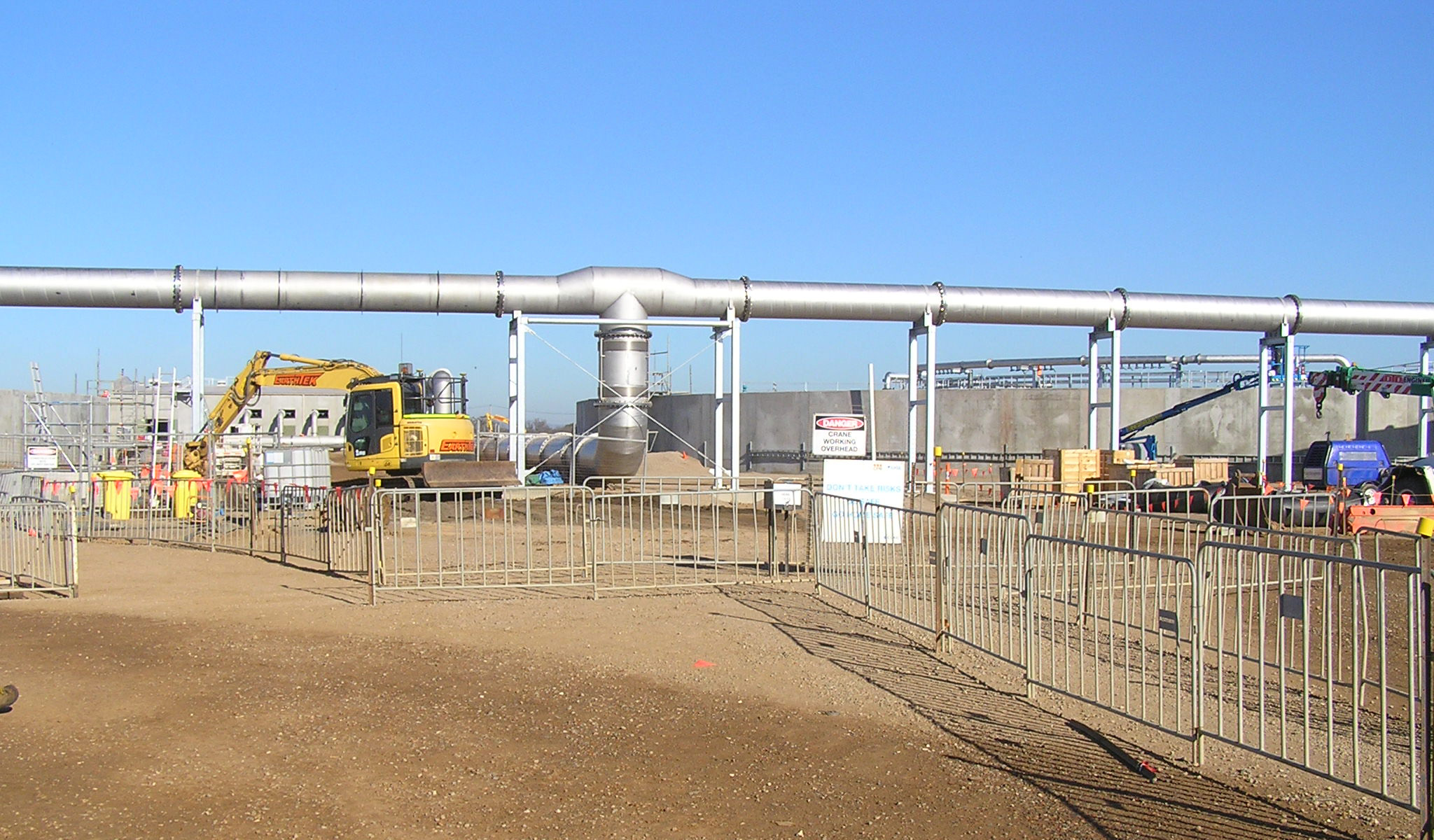
A mainstay in the processing of sewage water in water recycling applications, stainless steel once again plays a critical part in working towards a sustainable future.
Western Water Treatment Plant (WWTP), south of Werribee in Melbourne’s Western District, is a critical asset responsible for processing around half of the city’s total sewage. The process requires a massive footprint, where a series of large lagoons use anaerobic (without oxygen) and aerobic (with oxygen) bacteria to sequentially break down and clean the feed water of solids and gases. The resultant recycled water is used for multiple non-drinking purposes, including irrigation and firefighting.
WWTP is also largely energy self-sufficient. This energy is captured during the sewage treatment process by combusting biogas, which is captured under the covers. Biogas is used to meet much of the Plant’s electricity needs – preventing hundreds of thousands of tonnes of carbon dioxide entering the atmosphere each year.
The site carries significant environmental importance to both the immediate and wider areas. Biogas production from the process is used to meet all the Plant’s energy needs through on-site power generation. The Plant is an enormous site – almost the same size as Phillip Island and a world-renowned wetland, declared a Ramsar site in 1983. It is home to many species of flora and fauna and a haven for birdwatchers – in summer it can host more than 100,000 birds in a month.
With current capacity concerns in the existing plant network, stretching back 120 years, and a forecasted increase in processing demands due to a growing city, the need for an additional nutrient removal plant (to complement the existing two) was established. More efficient in design and with more advanced monitoring and controls to provide class A recycled water, the new plant provides an additional 140ML of treated water per day. The plant was designed by Jacobs and built by UGL and CBP Contractors, with commissioning in 2019.
Grade 316L stainless steel was selected as a default material for the pipework, in 2B finish. Offering strong corrosion resistance even against contaminated effluent water, its ease of fabrication and ability to be installed without the need for coating and subsequent maintenance was also important.
ASSDA Member and Accredited Fabricator Roladuct Spiral Tubing was selected to manufacture and supply approximately 50t of spiral welded large diameter pipe, ranging from 300 to 1422mm in diameter. Feed material was supplied by ASSDA Member, Midway Metals to Roladuct’s Melbourne manufacturing site.
Roladuct was nominated in 2019 for the ASSDA Fabricator Project of the Year Award, with judges impressed by the quantity of stainless steel used, as well as the significant environmental benefits realised by the plant upgrade.
As water assets continue to be upgraded and optimised for a growing country, stainless steel will continue to play a vital role in providing material performance and plant reliability for years to come.

Photo credit: Roladuct Spiral Tubing
This article is featured in Australian Stainless Magazine issue 71, 2021.